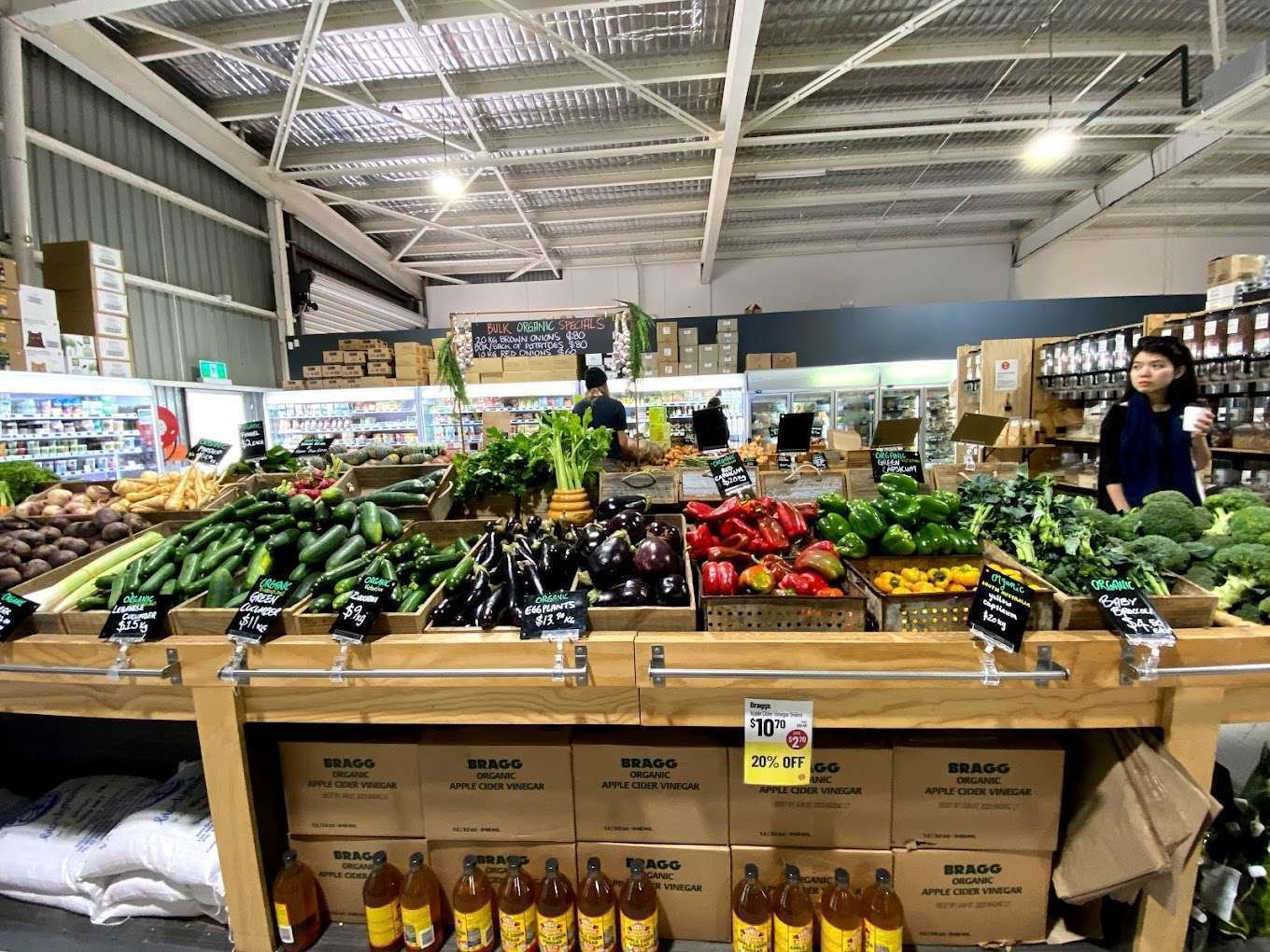- Your cart is empty
- Continue shopping
Empower Your Choices: A Comprehensive Guide to Making Ethical Purchasing Decisions

In this comprehensive guide, we will delve deep into the world of ethical purchasing, with a particular focus on the often-overlooked realm of grocery shopping. We’ll explore the ethical issues in grocery stores that lurk within the aisles of your local supermarket, from the treatment of workers to the environmental impact of food production.
But this guide goes beyond merely highlighting the problems. It’s designed to empower you, the conscientious consumer, to make informed, ethical choices within the context of “Ethical issues in grocery stores.” We will unravel the complexities of ethical labels and certifications, helping you decipher what they mean and how to spot them on product packaging.
We’ll also provide practical tips and strategies for navigating ethical dilemmas that can arise while shopping in grocery stores. Whether you’re faced with the choice between organic and local produce or wrestling with budget constraints, we’ll guide you towards decisions that align with your values.

Understanding Ethical Issues in Grocery Stores
In the bustling aisles of your local grocery store, there’s more to consider than just what’s on your shopping list. Grocery stores, despite being essential to our daily lives, are not exempt from ethical concerns that touch on various aspects of our society and environment. Understanding these ethical issues is the first step towards making conscious and impactful purchasing decisions.
One of the most prominent ethical issues in grocery stores is the treatment of laborers within the food supply chain. From farmworkers to factory employees, many individuals toil under harsh conditions, facing low wages, long hours, and inadequate labor protections. These issues often disproportionately affect marginalized communities, adding layers of social injustice to the ethical dilemma. By recognizing these challenges, you can begin to choose products that support businesses and practices prioritizing fair labor conditions and workers’ rights.
Another pressing concern involves the environmental impact of food production and distribution. The food industry is a significant contributor to climate change, deforestation, and pollution. The choices you make while grocery shopping can either exacerbate or alleviate these issues. For instance, opting for locally sourced and sustainably produced goods can reduce the carbon footprint associated with long-distance transportation and support environmentally responsible farming practices.
Animal welfare is yet another ethical issue to consider. Many grocery store products involve the exploitation or mistreatment of animals. Understanding the conditions in which animals are raised and the practices used in food production can help you choose products that align with your values, whether it involves selecting cage-free eggs, grass-fed meat, or plant-based alternatives.
By becoming aware of these ethical issues in grocery stores, you empower yourself to make choices that reflect your values and contribute to positive change. In the following sections of this guide, we will delve deeper into specific strategies and practical tips that will empower you to navigate these ethical challenges effectively while shopping for groceries.

The Impact of Your Choices
Your choices as a consumer extend far beyond the items you place in your grocery cart. They hold the power to shape industries, influence policies, and impact the lives of countless individuals. In this section, we’ll delve into the profound effects your ethical purchasing decisions can have on the world around you.
1. Economic Influence:
Every time you choose ethically sourced or produced products, you send a signal to businesses that there is a demand for responsible practices. This demand can lead to increased support for ethical businesses, prompting others to follow suit. In turn, this drives competition and innovation in the ethical sector.
2. Labor Rights:
Your choices can either support or challenge fair labor practices. Ethical purchases help uphold workers’ rights and wages. They encourage businesses to provide safe working conditions, fair wages, and opportunities for advancement. By choosing products that prioritize labor rights, you contribute to a more equitable and just job market.
3. Environmental Impact:
The food and products you select directly affect the environment. Ethical choices can reduce pollution, conserve natural resources, and promote sustainable farming practices. They encourage businesses to adopt eco-friendly packaging, reduce waste, and minimize their carbon footprint.
4. Animal Welfare:
Ethical purchasing decisions also extend to animal welfare. Opting for products that meet higher animal welfare standards encourages businesses to adopt humane practices. Your choices support efforts to reduce animal suffering and improve the treatment of animals throughout the supply chain.
5. Global Communities:
Ethical choices can positively impact communities worldwide. When you opt for Fair Trade products, for example, you support farmers and artisans in developing countries by ensuring they receive fair compensation for their goods. This can help lift communities out of poverty and create economic stability.
6. Policy and Regulation:
Collectively, the choices of ethical consumers can lead to changes in policies and regulations. Governments may respond to consumer demands by implementing stricter standards and regulations to promote ethical practices across industries.
7. Spreading Awareness:
Your ethical choices don’t go unnoticed. They serve as a powerful tool for raising awareness among friends, family, and your social network. By sharing your ethical journey and the positive impacts of your choices, you inspire others to do the same.

Ethical Labels and Certifications
In the complex landscape of grocery shopping, where ethical choices matter, understanding the significance of ethical labels and certifications is key to making informed decisions. Ethical labels and certifications serve as valuable signposts guiding us towards products that align with our values and ethical concerns. In this section, we’ll delve into the world of these labels and decode their meanings.
What Are Ethical Labels and Certifications?
Ethical labels and certifications are badges of honor for products that meet specific ethical standards. They are like ethical roadmaps that help consumers navigate the crowded grocery store aisles and make choices that reflect their values. These labels are awarded to products that adhere to rigorous criteria related to various ethical aspects, such as fair labor practices, environmental sustainability, animal welfare, and more.
Decoding Ethical Labels and Certifications
Fair Trade:
This label signifies that the product has been sourced from producers who receive fair compensation for their labor. It promotes equitable trading relationships and supports better working conditions for farmers and workers.
Organic:
Organic certification guarantees that the product was produced without the use of synthetic pesticides, herbicides, or genetically modified organisms (GMOs). It promotes environmentally friendly and sustainable agricultural practices.
Non-GMO Project Verified:
Products with this label are free from genetically modified organisms. They meet rigorous testing and traceability standards to ensure GMOs are not present.
Rainforest Alliance Certified:
This certification focuses on promoting sustainable farming practices, environmental conservation, and the well-being of workers and communities in tropical regions.
Certified B Corporation:
The B Corp certification identifies businesses committed to meeting high standards of social and environmental performance, transparency, and accountability.
Animal Welfare Approved:
This label ensures that animal products (e.g., eggs, meat) come from farms that prioritize humane treatment and ethical raising practices.
Why Ethical Labels Matter
Ethical labels and certifications provide consumers with a quick and reliable way to identify products that align with their ethical concerns. They empower us to support businesses that share our values and ethical priorities. When you see these labels on a product, you can trust that it has undergone a thorough evaluation process, making your ethical grocery shopping journey more straightforward.
As you explore the grocery store aisles, keep an eye out for these ethical labels and certifications, and let them guide you towards choices that not only nourish your body but also reflect your commitment to a more ethical and sustainable world.

Navigating Ethical Dilemmas
In the journey toward making ethical purchasing decisions in grocery stores, it’s inevitable that you’ll encounter ethical dilemmas—situations where your values may seem to conflict, making it challenging to make the “right” choice. However, these dilemmas need not be roadblocks; they can be opportunities for thoughtful consideration and growth.
1. Balancing Local vs. Organic:
One common ethical dilemma is choosing between locally sourced and organic products. Local products often have a lower carbon footprint due to reduced transportation, supporting the community. On the other hand, organic products prioritize environmental sustainability and chemical-free farming. In such cases, consider the proximity of the local farm, the environmental impact, and your personal values. Sometimes, it’s possible to find products that are both local and organic.
2. Price vs. Ethical Labels:
Ethical products can sometimes come with a higher price tag. This poses a dilemma, especially for those on a tight budget. While ethical choices may cost more upfront, they often reflect long-term savings through reduced healthcare costs or supporting fair wages. To navigate this, prioritize your values and allocate your budget accordingly. Start with a few key ethical choices and gradually expand over time.
3. Seasonal vs. Out-of-Season Produce:
Opting for seasonal produce is usually more environmentally friendly since it requires fewer resources. However, it may limit your choices in certain seasons. Ethical dilemmas arise when you want out-of-season fruits and vegetables. In such cases, consider whether the benefits of nutrition and satisfaction outweigh the environmental impact, and explore alternatives like frozen or preserved seasonal options.
4. Supporting Local Farmers vs. Supporting Ethical Brands:
You may face a choice between supporting local farmers and choosing well-established ethical brands. Local farmers contribute to the community, but ethical brands may have broader positive impacts. To navigate this, research brands’ ethical practices and consider the overall impact of your choice on the environment and society.
5. Convenience vs. Ethical Choices:
Convenience often clashes with ethical choices. Fast food and heavily processed options are readily available and save time but may not align with ethical and health values. In such dilemmas, plan your meals, batch cook, and explore quick yet ethical recipes to strike a balance.
Supporting Local and Sustainable Agriculture
In our quest to make ethical purchasing decisions in grocery stores, one of the most impactful choices we can make is to support local and sustainable agriculture. This choice not only contributes to a healthier environment but also strengthens local communities and food systems. Here, we’ll explore the importance of this practice and provide guidance on how to make it a part of your ethical shopping routine.
The Importance of Local and Sustainable Agriculture:
Local and sustainable agriculture prioritizes environmentally friendly and community-focused farming practices. When you choose to support local farmers and sustainable agriculture, you are helping to:
1. Reduce Food Miles:
Buying locally grown produce and products means that your food travels shorter distances to reach your plate. This reduces the carbon footprint associated with transportation and helps combat climate change.
2. Preserve Biodiversity:
Sustainable farming practices prioritize biodiversity and the responsible use of natural resources, helping to protect ecosystems and wildlife.
3. Support Local Economies:
By purchasing from local farmers and businesses, you reinvest in your community, bolstering the local economy and creating jobs.
4. Access Fresh, Seasonal Foods:
Local produce is often fresher and more nutritious since it is harvested at its peak and doesn’t require extended storage or long transport times.
Identifying and Purchasing Local and Sustainable Products:
Visit Farmers’ Markets
Farmers’ markets are great places to find locally sourced and often sustainably produced goods. Interact with farmers, ask questions about their practices, and build connections.
Look for Labels:
Many grocery stores now label products as “local” or “sustainably sourced.” Familiarize yourself with these labels and seek them out while shopping.
Join Community Supported Agriculture (CSA) Programs:
CSA programs allow you to subscribe to regular deliveries of fresh, locally grown produce. It’s a direct way to support local farmers.
Check Online Directories:
Online platforms and directories can help you find local farms and businesses committed to sustainable practices.
Grow Your Own:
Consider cultivating a small garden or even potted herbs on your balcony or windowsill. This hands-on approach promotes sustainability and reduces reliance on store-bought produce.
By supporting local and sustainable agriculture, you become an essential part of a broader movement toward a more ethical and environmentally conscious food system. Your choices contribute to healthier communities, reduced environmental impact, and the preservation of precious natural resources.

Ethical Shopping Tips and Strategies
When it comes to ethical grocery shopping, armed with knowledge, you can make a substantial impact on your purchasing choices. Here, we offer practical tips and strategies to help you navigate the aisles of grocery stores while aligning your values with your shopping cart.
1. Plan Your Meals and Make a List:
– Start your journey to ethical shopping by planning your meals for the week ahead. This simple step can significantly reduce impulse buying.
– Create a detailed shopping list based on your meal plan. This will not only save you time but also ensure you buy only what you need, reducing food waste.
2. Prioritize Seasonal and Local Produce:
– Opt for fruits and vegetables that are in season. Seasonal produce is often fresher, tastier, and has a lower environmental footprint.
– Support local farmers by purchasing their products. Look for labels like “locally sourced” to identify such items. Buying local not only supports the community but also reduces the carbon footprint associated with long-distance transportation.
3. Choose Organic Whenever Possible:
– Consider choosing organic products, especially for items like fruits, vegetables, and dairy. Organic farming practices tend to be more sustainable and reduce the use of harmful chemicals.
– Keep in mind that organic certification can be expensive for small farmers. Engage with local producers to understand their farming practices, even if they aren’t certified organic.
4. Reduce Meat and Dairy Consumption:
– Reducing meat and dairy consumption or opting for plant-based alternatives can have a positive impact on animal welfare and the environment.
– If you choose to eat meat, consider purchasing from sources that practice ethical animal husbandry and sustainable farming methods.
5. Buy in Bulk and Minimize Packaging:
– Buying in bulk reduces packaging waste and can save you money in the long run.
– Invest in reusable shopping bags and containers to further reduce plastic waste while shopping.
6. Read Labels and Do Your Research:
– Take the time to read labels and certifications on products. Look for familiar ethical labels like Fair Trade, Non-GMO, and Certified Organic.
– Educate yourself about the companies and brands you support. Are they committed to ethical and sustainable practices? Investigate their values and track record.
7. Support Ethical Brands:
– Identify and support brands that have a strong commitment to ethical practices, sustainability, and transparency. These companies often prioritize responsible sourcing and fair labor practices.
By incorporating these ethical shopping tips and strategies into your grocery routine, you can empower your choices and contribute to a more sustainable and responsible food system. Every decision you make at the grocery store is an opportunity to make a positive impact on the world.
Resources for Ethical Grocery Shopping
When it comes to making ethical grocery shopping decisions in Australia, you’re not alone on your journey. There are numerous resources and organizations ready to support and guide you toward choices that align with your values. Here, we’ve compiled a list of valuable resources to assist you in your quest for ethical grocery shopping:
1. Australian Certified Organic (ACO):
Look for the ACO logo when shopping for organic products. ACO certifies products that meet stringent organic standards, ensuring you’re supporting sustainable farming practices.
2. Fairtrade Australia and New Zealand:
Discover Fairtrade-certified products that promote fair wages and ethical production in developing countries. The Fairtrade label can be found on a variety of items, including coffee, chocolate, and tea.
3. Local Food Markets:
Explore local farmers’ markets, co-ops, and community-supported agriculture (CSA) programs in your area. These sources often provide fresh, seasonal, and locally grown produce with minimal environmental impact.
4. Local Environmental Organizations:
Connect with local environmental groups and organizations that often host events, workshops, and educational sessions on sustainable and ethical living.
By utilizing these resources and staying informed, you can make conscious choices while grocery shopping in Australia. Each ethical purchase you make contributes to a more sustainable and responsible food system, benefiting both your well-being and the environment. Remember, every small action counts toward a more ethical and sustainable future.
In conclusion, we’ve explored the crucial world of ethical purchasing decisions in grocery stores. It’s evident that the choices we make while shopping can have a profound impact on our communities and the world at large. By understanding the ethical issues at play, deciphering labels and certifications, and employing practical shopping strategies, we can empower ourselves to make choices that align with our values.
Remember, every purchase is an opportunity to contribute to positive change, whether it’s supporting fair labor practices, reducing environmental impact, or promoting animal welfare. As consumers, we have the power to drive transformation in the grocery industry.
So, as you head out for your next grocery run, keep these ethical considerations in mind. Your choices matter, and together, we can create a more ethical and sustainable food system for everyone.



